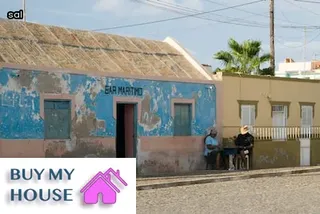When it comes to unlocking the benefits of probate real estate in Arizona, it is essential to have the right guidance and support. Working with a probate attorney can provide invaluable assistance in navigating the legal and financial complexities of the process.
A lawyer that specializes in probate law can provide advice on how best to manage the property, whether it be through inheritances or selling off assets. An attorney can also help to ensure that all taxes and debts are addressed properly.
In addition, they can work with family members and other parties involved to ensure that everyone’s rights are respected and taken into account when making decisions about the property. With their expertise, a qualified attorney can make sure that the transaction is completed quickly and efficiently, reducing the stress and hassle for all parties involved.

Probate real estate sales are a great way to unlock the benefits of investing in Arizona real estate, but it is important to understand the basics before getting started. The probate process begins when a will is submitted to the court, and an executor is appointed by the court.
This person has the responsibility of gathering all of the deceased’s assets and distributing them according to the wishes in their will. Probate real estate sales occur when a property belonging to an estate is sold in order to pay off any outstanding debts or taxes due upon death.
Because this process can be complicated, it is important for potential buyers to enlist the help of a knowledgeable attorney or realtor who understands the ins and outs of Arizona probate law. When navigating these types of sales, buyers should also consider other costs associated with closing such as fees for appraisals, title searches, and deed preparation.
Understanding these details ahead of time can go a long way towards ensuring that you get the most out of your investment in Arizona's probate real estate market.
When a person passes away in Arizona, the probate process begins in order to determine the distribution of their assets. During this time, an Executor or Administrator is appointed to manage the estate and ensure that all assets are properly distributed as per the deceased’s wishes.
In Arizona, anyone over 18 years of age and in good mental health can be appointed to serve as an Executor or Administrator. Generally speaking, the court will try to appoint someone familiar with the deceased’s wishes such as a close family member or friend.
If no individuals are available or willing to serve, the court may appoint a professional fiduciary like a bank trust officer or lawyer who specializes in probate law. Once appointed, it is important for Executors and Administrators to understand their duties which include managing all aspects of the estate including filing taxes, selling any real property owned by the deceased and distributing funds according to legal requirements and provisions outlined in the deceased’s will.

Probate real estate in Arizona can be immensely beneficial, but the overbidding process may seem intimidating to some. In this situation, the court assigns a personal representative who is responsible for managing the estate. The representative will create an advertisement announcing the sale of the property.
It is important to note that in Arizona, any interested parties must submit their bids for the property within a certain time frame and in writing. The highest bid accepted by the court is normally considered to be the winner. However, it is possible for an individual to make a higher bid than someone else's without knowing what that other person's bid was.
This process is known as "overbidding." When someone overbids another party, they are essentially increasing their offer above what was previously offered and accepted by the court. To be successful at overbidding, it is important to do your research on comparable properties in order to determine what a fair market value would be for the probate property being sold.
Additionally, it's important to consider how much you're willing to pay and make sure that your bid is submitted before any other offers have been made or accepted by the court. With proper research and preparation, understanding and taking advantage of probate real estate opportunities can be rewarding.
Navigating the probate process in Arizona can be a daunting task for those unfamiliar with the legal proceedings. It is important to understand each step in the process, from filing papers to closing the sale of a property.
One of the key elements to success in this type of real estate venture is having an experienced team of professionals who understand the complexities of probate law in Arizona. A qualified attorney should be consulted to ensure that all necessary documents are filed accurately and timely, while also providing guidance on any potential legal issues that may arise.
In addition, hiring a knowledgeable real estate agent can help guide you through the entire process, from researching comparable properties and preparing an offer to negotiating terms with potential buyers and handling closing paperwork. Finally, it is essential to follow all court orders during this time, as failure to do so could lead to delays or even nullify the sale altogether.
With proper planning and experienced guidance, unlocking the benefits of probate real estate investments in Arizona can be a rewarding endeavor for investors looking for unique opportunities in today’s market.

Using top real estate agents in Arizona who are certified in probate can be a great way to unlock the benefits of probate real estate. These agents understand the local laws and regulations, which is essential when it comes to buying or selling a property that is part of an estate.
They are also equipped with the knowledge and experience necessary to help you navigate the complexities of probate law. With their help, you can make sure that all legal requirements are met and that you get the most out of your purchase or sale.
Additionally, they can provide valuable advice when it comes to assessing market conditions and understanding the financial implications of investing in this type of real estate. By taking advantage of their expertise and resources, you can ensure that any transaction involving a probate property is completed quickly and efficiently.
In Arizona, the probate process is important for ensuring that the deceased’s estate is distributed according to their wishes. Knowing if probate is required in Arizona can help you unlock the benefits of probate real estate and ensure that potential heirs receive what they are entitled to.
Generally speaking, any real estate owned by a decedent must go through probate in order to be distributed according to their wishes. If the property was held solely by the decedent, then it will have to go through a full probate process under Arizona law.
However, if there were co-owners, such as a spouse or business partner, then certain types of transfers are allowed without going through full probate proceedings. You should also be aware of situations where probate could be avoided due to an existing trust agreement or other financial arrangements.
To determine whether or not probate is needed in Arizona for a particular property, it is important to discuss your situation with an experienced attorney who specializes in this area of law. An attorney can review all details and help you understand how best to proceed so that you can unlock the benefits of probate real estate in Arizona and ensure that all heirs receive what they are entitled to from the deceased's estate.

When considering probate real estate in Arizona, it's important to consider the possible alternatives that can help avoid the lengthy and expensive process. These alternatives can include creating a trust, transferring assets while still living, or creating a joint tenancy.
Understanding how each of these methods works is critical to unlocking the full potential of probate real estate in Arizona. A trust is often used as the primary means to avoid probate because it allows you to designate another party as trustee who will be responsible for managing your assets.
Transferring assets while still alive is also an option, but this method requires careful planning and execution in order to ensure that all legal requirements are met. Finally, if you have multiple owners associated with one piece of property, creating a joint tenancy can help protect all parties involved by allowing them to share ownership rights.
No matter which route you choose, it's important to understand the implications and potential benefits of each before making a decision on how to handle your probate real estate in Arizona.
When it comes to probate real estate in Arizona, understanding the guidelines on executor compensation is essential. Executors are responsible for managing the estate of the deceased, which includes taking care of assets, paying debts and taxes, and distributing assets according to the decedent's will.
In Arizona, executors are entitled to receive payment from the estate for their services. However, there are certain rules that must be adhered to when calculating how much an executor can be paid for their duties.
The court must approve all fees charged by an executor before they can receive payment. Additionally, in order for an executor to be eligible for compensation their duties must involve tasks such as communicating with family members and creditors, filing court paperwork and other related activities; tasks that require a significant amount of work and time from the executor.
Furthermore, compensation can vary depending on the complexity and size of an estate; any expenses incurred by an executor while handling estate-related matters may also be reimbursed. It is important to note that all funds belonging to the estate must be used first before any payments are made directly to an executor.
Understanding these regulations is key when unlocking the benefits of probate real estate in Arizona; being aware of applicable laws helps ensure that estates are managed appropriately and fairly.

The process of listing property through probate court in Arizona begins with the executor of the estate filing an application for probate. The court will then appoint an administrator to manage the estate and oversee the sale of any real estate held by the deceased.
If a full probate is necessary, this can be a lengthy process depending on the complexity of the estate, but there are some steps that can be taken to expedite it. Once all required documents have been filed and approved, the administrator will then work with a local realtor to list the property for sale.
In most cases, a competitive bidding process will be used to determine who will purchase the home or other real estate assets. The successful bidder must then submit a deposit equal to 10% of their bid amount prior to closing on the property.
After all parties have agreed upon terms and conditions, they must sign closing documents and record them with local authorities in order to complete the transaction. By following these steps, those looking to acquire real estate assets through probate in Arizona can enjoy significant financial benefits.
When selling a home through probate court in Arizona, there are potential legal pitfalls to consider. It is important to understand the nuances of probate law in the state before beginning the process.
An experienced real estate attorney can help you navigate any potential liabilities. There may be other parties involved in the probate process who have certain rights and interests that need to be taken into account.
It is also important to ensure that all required paperwork is correctly filed with the court system before paperwork can move forward. Knowing how taxes will be assessed and paid can help avoid costly mistakes.
Furthermore, understanding how probate sales differ from traditional real estate transactions can help you maximize the financial benefit of selling a home through probate court. With careful planning and due diligence, it is possible to unlock the benefits of probate real estate in Arizona while mitigating legal risks.

When selling a property through probate court in Arizona, notable tax consequences should be taken into consideration. The estate of the deceased is responsible for any income taxes owed on the sale of the real estate, and this must be filed with the IRS within nine months of receiving the court order.
Additionally, state-specific taxes may also apply and must be paid out of either the decedent's estate or from proceeds of sale. All capital gains due to appreciation over time will be added to the taxable income, meaning that an executor must accurately account for all expenses related to selling a probate property in Arizona.
Finally, if any of these taxes are not paid on time, there may be late payment penalties imposed upon the executor which can add additional costs to the process. By establishing and understanding these noteworthy tax consequences related to selling property through probate court in Arizona, individuals can ensure that they are fully aware of their financial obligations and avoid any potential conflicts with taxing authorities.
When completing a home sale through the probate court in Arizona, it is important to have an understanding of the timelines involved. As a general rule, the time it takes to sell a home through probate depends on the complexity of the estate and how quickly heirs and beneficiaries respond to requests for information.
The process typically begins with filing a petition with the court to open a probate case and receive letters of testamentary. It is estimated that this step alone can take up to three months or more.
Once all paperwork is submitted, an executor or personal representative must identify and appraise assets, notify all interested parties, pay creditors and taxes, distribute remaining assets according to instructions in the will, and prepare closing documents for property ownership transfer. This process can take anywhere from several weeks to several months depending on the size and complexity of the estate.
Knowing these common timelines can help ensure that you are able to unlock the benefits of probate real estate in Arizona in a timely manner.
In Arizona, all estates are not required to go through the probate process. Depending on the size of the estate and its assets, probate may or may not be necessary.
In some cases, it may be beneficial for an estate to go through probate as it can unlock certain benefits for the heirs of a deceased person's estate. Probate real estate in Arizona can provide heirs with quick access to their inheritance and may also help to protect their rights against potential creditors.
By understanding the basics of probate real estate in Arizona, heirs can make informed decisions about how best to handle their inheritance.

Yes, you can sell a house in probate in Arizona. Probate real estate can provide substantial financial benefits to the executor or heirs of an estate.
As part of the probate process, a court-appointed executor has the authority to list and market the real estate for sale. When selling a house in probate in Arizona, it is important to understand all applicable law and regulations.
A qualified real estate attorney should be consulted to ensure that all legal requirements are met during the sale of a property in probate. The court must approve any sales contract before it is finalized.
Once the contract is approved, a closing date will be set and funds will be disbursed accordingly. While there are some challenges associated with selling a house in probate, those challenges can be overcome by working closely with professionals who specialize in probate real estate transactions and navigating the legal system efficiently.
By unlocking the benefits of probate real estate in Arizona, executors and heirs can maximize their return on investment from inherited property.
In Arizona, probate records are public and can be accessed by anyone with a valid reason. Probate is the process of settling an estate after a death and requires court supervision in order to distribute assets according to the decedent’s will or state laws.
In Arizona, probate is handled through the County Superior Court in the county where the decedent resided at their time of death. The Arizona Unified Probate Code governs all probate proceedings in the state.
All documents filed during the probate process become part of the public record and are available for review on request. However, certain documents such as medical records may not be released without a court order.
With access to these public records, investors can unlock the potential benefits of investing in real estate held in probate in Arizona.
In Arizona, the value of an estate must meet a certain threshold in order to be subject to probate. Depending on the size of the estate, the process may require extensive paperwork and filing fees.
In cases where an individual has died without a will (intestate), Arizona law dictates that the decedent's assets are distributed according to their kinship ties. The amount required for an estate to go through probate depends on if it contains real property or personal property.
Real property requires an estate of any value while personal property requires a minimum value of $50,000 or more. For estates with real property, it is important to understand what documents are needed and how long it takes before an individual can unlock the benefits of owning probate real estate in Arizona.
It is also important to understand what fees and taxes must be paid as part of this process. Knowing all of these details can help you make informed decisions about whether or not unlocking the benefits of owning probate real estate in Arizona is right for you.